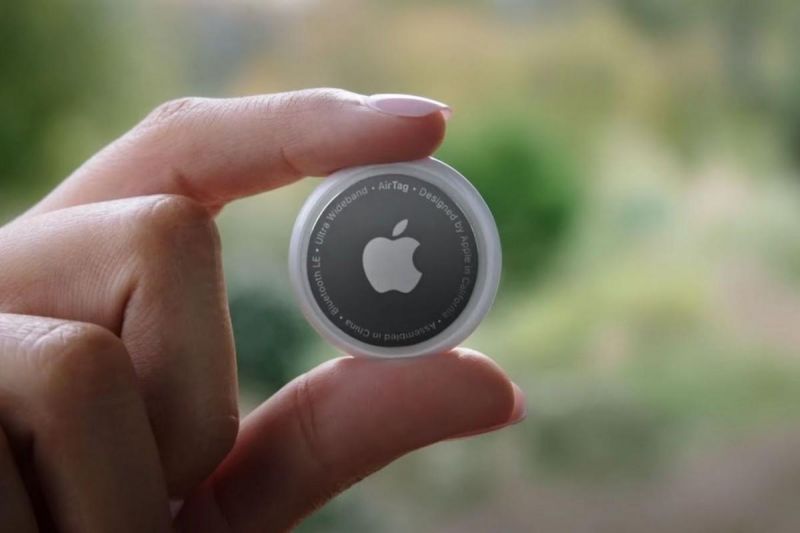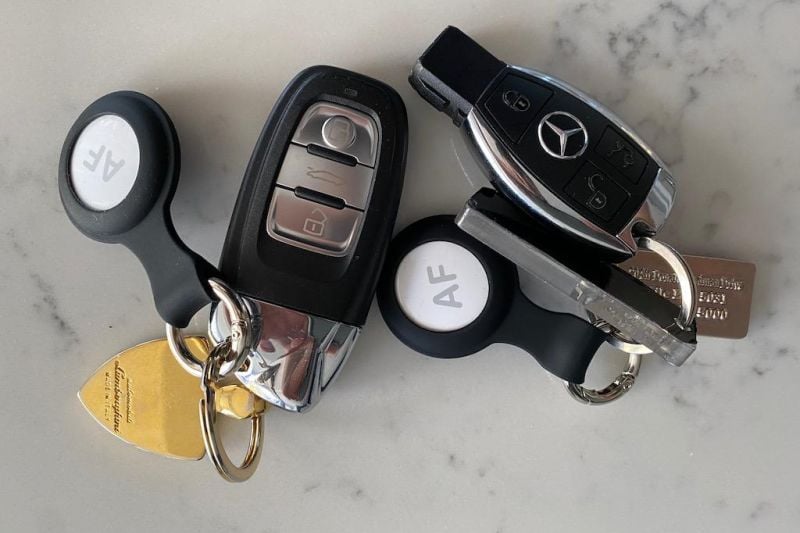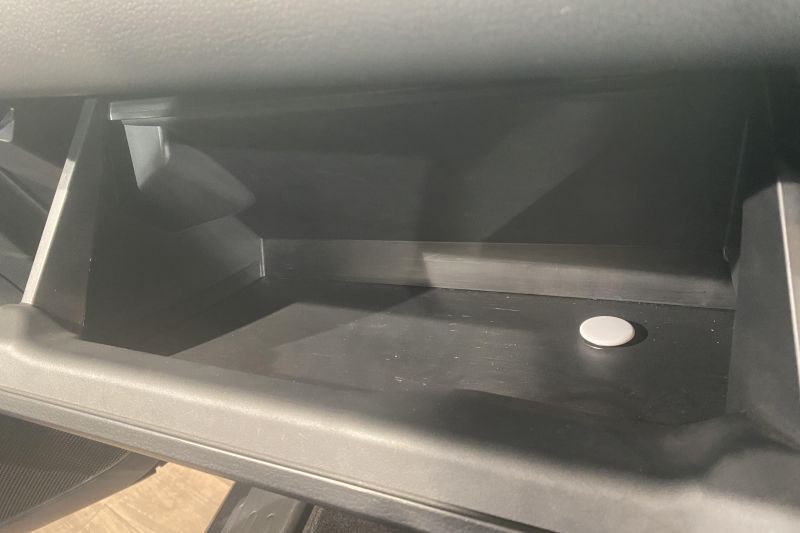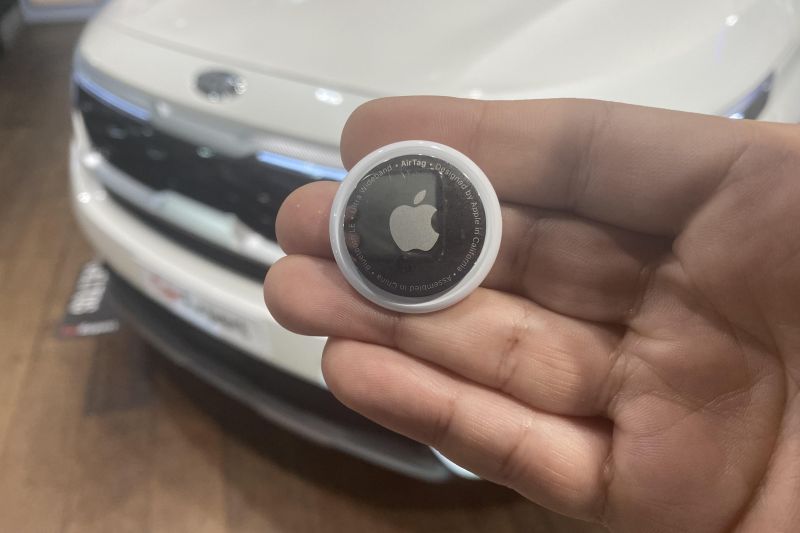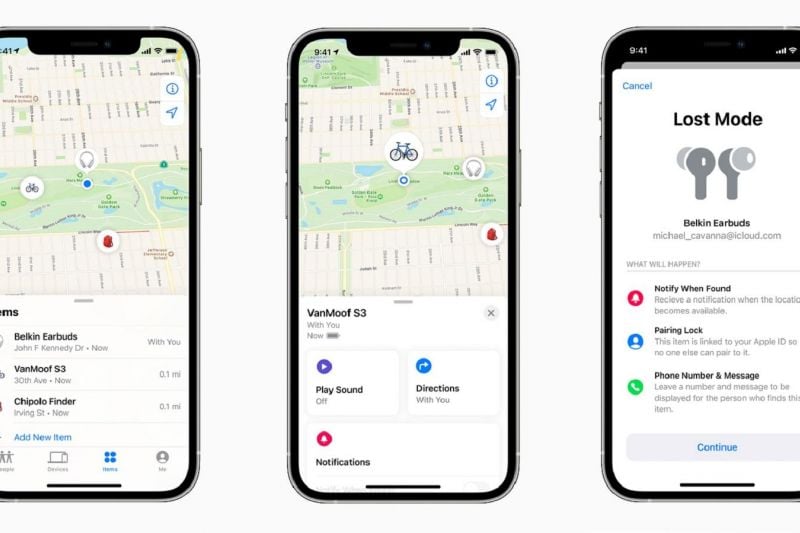With the rate of car thefts seemingly accelerating, the need for a proper car tracker seems more prudent now than ever.
While many tracking systems rely on GPS and a mobile data connection atop power and professional installation, the introduction of affordable Apple AirTags has raised an interesting question: can you use them to track a vehicle?
Apple charges $45 per AirTag, or $149 for a pack of four. They come with a replaceable battery that lasts at least 12 months.
Android users can get the Samsung SmartTags at around similar money.
Having previously had a car brazenly stolen from my house, the idea of trackers was high on the agenda. Nonetheless, the tracking needs to be somewhat reliable, and Apple has a reputation for making things that just work.
When the AirTags were announced I put in an order for 16; the maximum number that can be associated with any Apple ID. Not only are they now on the things I lose all the time, I’ve put a few in some of my cars and keys.
For the uninitiated, AirTags are small circular devices smaller in diameter than a 50 cent coin made to put on things like wallets, handbags, keys, or pets that will transmit the location to the owner in the Find My app on Apple Devices.
They don’t need a cellular data connection because the AirTags can use (via Bluetooth) any nearby device running Apple’s latest operating system (the majority of Apple devices) to transmit its location.
Say you have an AirTag in your car and it gets stolen. There’s an extremely high chance the AirTag will come within around 20m of an iPhone or iPad during its time outside your possession.
It will then transmit its location every few minute. Even if the thief doesn’t have an iPhone, all they need to do is sit at a set of lights next to another driver who does and it will transmit the location.
AirTags are small enough to hide in such a manner it would be near impossible to find them. However, there is a catch.
Given the absolute ease with which these devices could be used for the wrong reasons, such as stalking, Apple will let someone know they’re being tracked by an AirTag after between 24-72 hours of continuously moving with one that doesn’t belong to them. There is no official documentation on the exact period, but during our test it was at least three days.
If someone was to steal your car and had an iPhone, and they drove the car repeatedly for three days straight, their phone would alert them to the fact they’re being tracked.
Also undermining its usefulness as a potential car tracker, Apple even allows the ‘thief’s’ iPhone to locate exactly where the AirTag is in the car using its ultra-wide-band chip, which is accurate to within a few centimetres on the iPhone 11 and above.
If they are incompetent enough to still not be able to find it, it will actually start playing a sound to help.
Does that make the Apple AirTag useless for a vehicle tracker? Not necessarily. It gives the AirTag owner a reasonable period of time to find the car, which is a pretty reasonable period given the cost.
There’s also a chance Apple will find a better way to differentiate between a stolen AirTag and one placed with malicious intent.
For the purposes of this test, we put an AirTag in a test drive car at the CarExpert Experience Centre. All of our cars have a GPS tracking unit built wired in, so it gave us a chance to test an AirTag’s ability to track a vehicle against a purpose-built solution.
Firstly, the car trackers are easier to find unless you have them fitted by an auto electrician in an obscure place that still gets power. With an AirTag, you can use double sided tape to attach it to the bottom of a seat, under the carpet in the boot, or wherever else you don’t think it will be found.
During a 30 minute test drive, the GPS tracker gave minute by minute updates as to the location of the car. The AirTag wasn’t as consistent with its updates, going as long as four minutes before updating, but it followed the same path.
We should note for the purpose of the test the person driving the car had a Samsung phone and not an iPhone, so there’s a good chance the AirTag was only transmitting its location when side-by-side with, or stopped at a set of lights near, a car with an Apple device inside.
If the person driving had an iPhone we suspect those results would be a lot more frequent.
When the car was returned to our parking bay the GPS updated immediately, but it took the AirTag roughly three minutes before it gave its updated location.
It’s not a like-for-like replacement for an actual GPS tracker, but for under $50 it’s an amazing thing to chuck in your car in case it ever gets stolen.
Or do what I did and chuck two in each car for good measure; one easy to find and the other as hard as possible.
Tell us if you have had an AirTag or other tracking devices fitted inside your car and what your experience has been.





